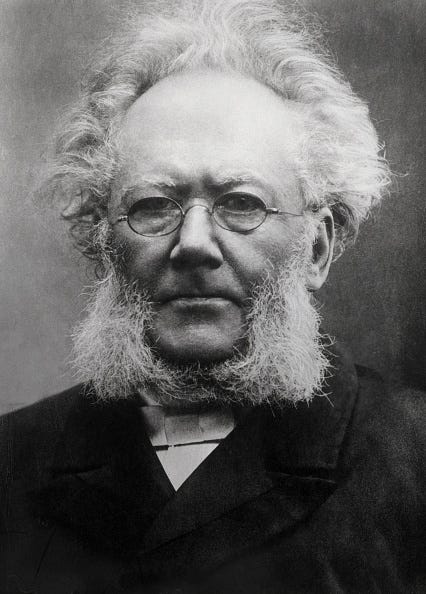The Writer's Almanac from Wednesday, March 13, 2013
"Twilight Comes" by Hayden Carruth, from Collected Shorter Poems 1946-1991. © Copper Canyon Press, 1992.
ORIGINAL TEXT AND AUDIO - 2013
On this date in 2003, the journal Nature reported the discovery of 350,000-year-old fossilized human footprints in Italy. They are arguably the oldest known human footprints; an older set, dating back three and a half million years, was discovered in Tanzania in 1979, but they probably belonged to hominids not directly related to our species, Homo sapiens.
The Italian footprints reported in Nature are about eight inches long and four inches wide, and their makers were probably no taller than five feet.
It's the birthday of journalist Janet Flanner, born in Indianapolis (1892). Flanner got kicked out of the University of Chicago for being a "rebellious influence." She went back to Indianapolis, and worked for The Indianapolis Star as a film critic, one of the first in the nation. She was particularly interested in crime and moved to Pennsylvania to work at a girl's reformatory. In 1922, she took a trip to Europe and ended up settling in Paris. From there, she began writing long letters to her friends in America, including to Jane Grant, with whom she had helped found the Lucy Stone League, an organization that fought to allow women to keep and use legally their maiden name after marriage. Grant was the wife of Harold Ross, who was starting a new magazine, and she asked if Flanner would write a regular letter from Paris for the magazine.
Her first "Letter from Paris" appeared in The New Yorker in September of 1925, and she continued writing it for 50 years. It became a biweekly feature of the magazine in which she wrote about how public political news affected private lives. Without telling her, Ross gave Flanner the pen name Genet, which he thought was the French name for Janet, but is actually the French word for female donkey.
It's the birthday of science fiction writer and Church of Scientology founder L. Ron Hubbard, born in Tilden, Nebraska (1911). He enrolled in George Washington University in 1930 to study civil engineering but was placed on academic probation because of poor grades, and he left after two semesters. In 1950, he wrote Dianetics: The Modern Science of Mental Health, which formed the basis of the Church of Scientology's teaching. The book explains that humans have "engrams," recordings of painful events experienced in the past, stored in their subconscious and that these are the basis of physical and emotional problems. In order to be cleared of these engrams and unwanted spiritual conditions, a person takes part in an "auditing" session, where a counselor uses an Electropsychometer, or E-Meter, to measure the mental state of a person, helping to locate areas of spiritual distress so they can be addressed and handled in a session. The book became a best-seller and sold 150,000 copies within a year of publication.
It was on this day in 1881 that Henrik Ibsen's play Ghosts opened on the London stage. Ghosts was considered a controversial play with references to incest and sexually transmitted diseases, and Ibsen refused to give his audiences the happy endings they were used to. The play had already been banned in St. Petersburg on religious grounds when it premiered in London.
The first performance alone of Ghosts caused more than 500 printed articles to be written in response to it, and Ibsen became a household name even to people who had never seen the play or read a book. Henrik Ibsen died in 1906 when he was 79. He was given a state funeral, and King Haakon of Norway attended.
Henrik Ibsen wrote in Act 2: "I almost think we're all of us Ghosts. ... It's not only what we have invited from our father and mother that walks in us. It's all sorts of dead ideas, and lifeless old beliefs, and so forth. They have no vitality, but they cling to us all the same, and we can't get rid of them. Whenever I take up a newspaper, I seem to see Ghosts gliding between the lines. There must be Ghosts all the country over, as thick as the sand of the sea. And then we are, one and all, so pitifully afraid of the light."
Be well, do good work, and keep in touch.®
We’re celebrating the 50th Anniversary of A Prairie Home Companion. Click on the image below for some history!






By what imagination’s stretch are these “Italian” footprints??????????
“The Italian footprints reported in Nature are about eight inches long and four inches wide, and their makers were probably no taller than five feet.”
"And then we are, one and all, so pitifully afraid of the light," writes Hayden Carruth, but he has it all backwards. It's the lights that light our lives and get things done. In the dark, the thinking can happen then, but it's then unlit. Who wants a play in the dark?
A candle helps, but only a little. Awaken, Carruth! Most of your work is lit and so are your thoughts, whether you know it or not! And so are your passing-ons. And so are our own.
Let's get it done before twilight comes. Or before we are called by our maker. Else how did St. Peter know we had more good things written? Let there be light!